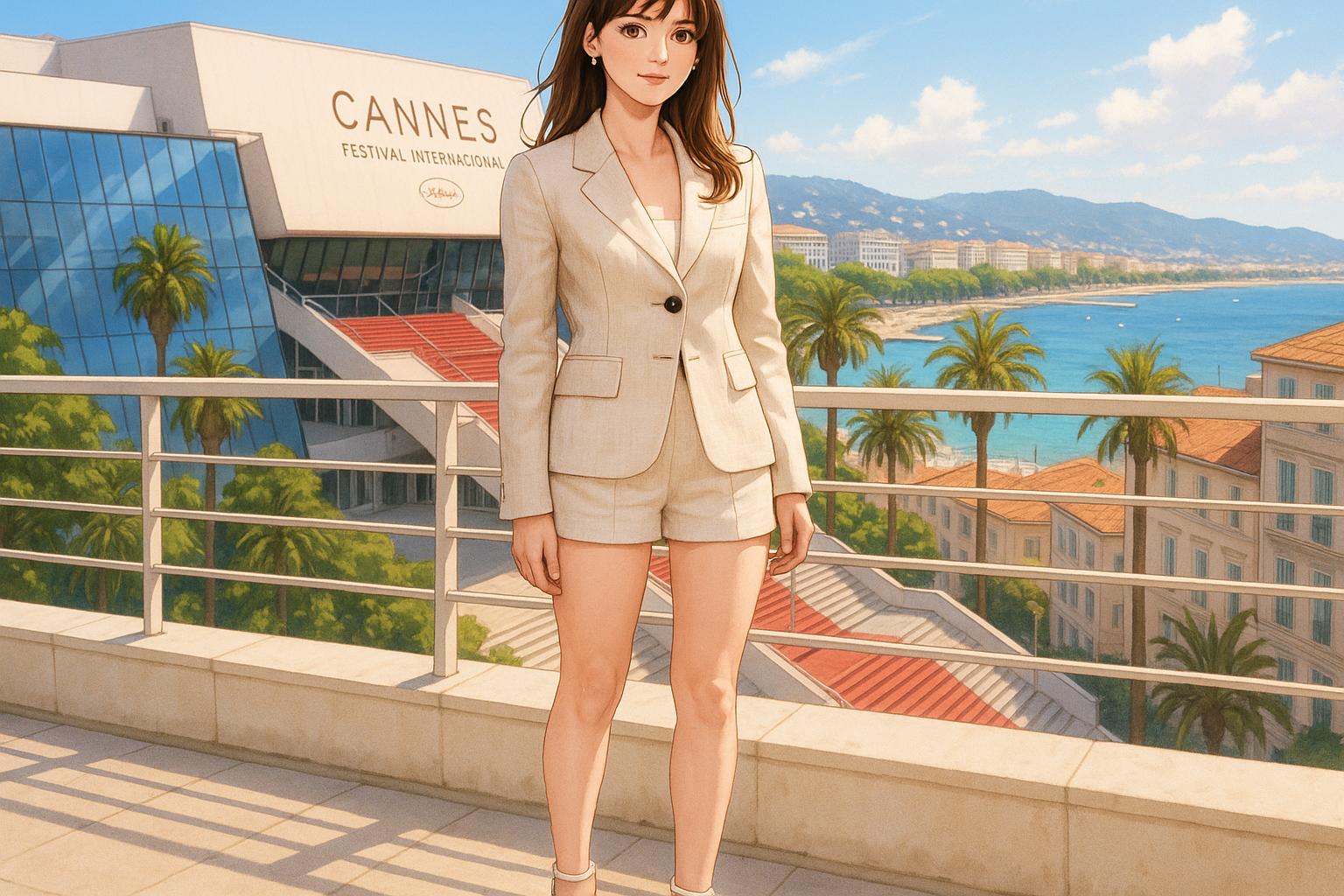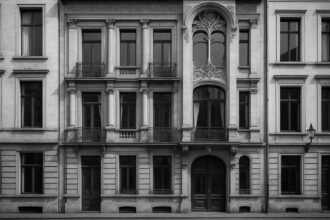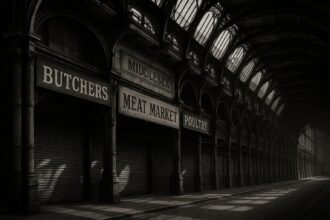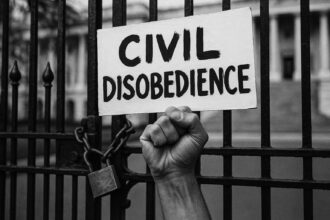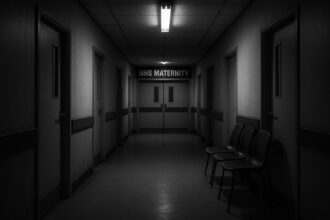As the 78th Cannes Film Festival introduces a strict no-nudity policy, Daisy Edgar-Jones captivates in Gucci shorts, while filmmakers face mounting political and cultural pressures that could reshape the future of cinema.
Daisy Edgar-Jones made a striking entrance at the 78th Cannes Film Festival, showcasing her toned legs in a chic ensemble featuring tiny linen shorts from Gucci. The actress, known for her acclaimed role in “Normal People,” completed her look with strappy white heels and a fashionable mini handbag as she made her way to her hotel in the sun-soaked South of France.
This year’s Cannes Film Festival is underscored by significant changes and challenges within the film industry. Among these, the festival is characterised by new nudity rules, aimed at curbing the trend of provocative red carpet outfits that have garnered both attention and controversy in previous years. Organisers have stipulated that “for decency reasons” nudity is prohibited in all areas of the festival, including the iconic red carpet. This move suggests a pivot towards more conventional attire, as the event expects attendees to favour sophisticated looks over ostentatious displays.
Compounding the atmosphere of anticipation and tension this year is the backdrop of international relations, particularly the recent announcement by former President Donald Trump on May 4 regarding significant tariffs on foreign films. Although the White House indicated that no final decisions have been made, the spectre of potential 100% tariffs has sent ripples through Hollywood, reminding filmmakers and distributors of the precarious position of the film industry amid political turbulence. Brazilian director Kleber Mendonça Filho reflected on the pressure of premiering films in such a high-stakes environment, likening it to “approaching a roller coaster” due to its intensity.
Historically, the Cannes Film Festival has been a sanctuary for cinematic excellence, emerging from the shadows of World War II as an alternative to the Venice Film Festival. Its commitment to showcasing diverse cinematic talents has made it a pivotal event for filmmakers worldwide. This year, alongside Edgar-Jones, notable first-time filmmakers such as Kristen Stewart and Scarlett Johansson will be unveiling their directorial debuts, signalling a new wave of creative voices seeking recognition within the illustrious festival framework.
The festival is also undergoing broader cultural shifts, particularly in light of recent convictions and accusations within the French film industry. In a significant moment of accountability, actor Gérard Depardieu received an 18-month suspended sentence for sexual assault, while actor Théo Navarro-Mussy was barred from attending Cannes despite having charges against him dropped. These incidents highlight a noteworthy movement in France—a country that has long struggled with reconciling artistic merit with personal conduct.
As the bustling atmosphere of Cannes unfolds over the two-week period that gathers filmmakers, critics, and celebrities alike, the spotlight is not merely on the films being screened but also on the evolving cultural narrative that surrounds the festival. Attendees are expected to respect the new dress regulations while navigating the intricate dynamics of a film industry that is both venerable and vulnerable.
With the glittering Palais des Festivals as a backdrop, hope remains that Cannes will continue to be a fertile ground for cinematic achievements while responding to the pressing societal issues that resonate within the halls of the film community, both in France and beyond.
Source: Noah Wire Services
- https://www.dailymail.co.uk/tvshowbiz/article-14722785/Daisy-Edgar-Jones-leggy-cannes-film-festival.html?ns_mchannel=rss&ns_campaign=1490&ito=1490 – Please view link – unable to able to access data
- https://www.dailymail.co.uk/tvshowbiz/article-14722785/Daisy-Edgar-Jones-leggy-cannes-film-festival.html?ns_mchannel=rss&ns_campaign=1490&ito=1490 – Daisy Edgar-Jones, 26, showcased her toned physique in a chic Gucci co-ord featuring tiny linen shorts as she arrived at the 78th Cannes Film Festival. She accessorized with strappy white heels and a stylish mini handbag while heading to her hotel. This year’s festival is notable for its new nudity rules, prohibiting revealing outfits on the red carpet to maintain decency. The festival, a global gathering for filmmakers and journalists, is renowned for its prestigious Palme d’Or award and serves as a significant platform for international cinema.
- https://www.apnews.com/article/8d69507fbf769a4f71a5b53906a9ad19 – In a pivotal week for France’s film industry, iconic actor Gérard Depardieu was convicted of sexual assault, receiving an 18-month suspended sentence, while the Cannes Film Festival barred actor Théo Navarro-Mussy, accused of rape, from attending despite the charges being dropped. These actions signal a significant cultural shift in a nation that has long separated artistic brilliance from accountability. France has historically tolerated questionable behavior from revered male figures under the guise of artistic freedom, but recent events suggest that tide is turning.
- https://www.lemonde.fr/cinema/article/2024/05/25/festival-de-cannes-retrouvez-les-films-en-competition-avant-la-ceremonie-de-cloture_6235486_3476.html – The 77th Cannes Film Festival concluded on May 25, 2024, with a closing ceremony presided over by director Greta Gerwig and a jury comprising actors like Omar Sy, Lily Gladstone, and Pierfrancesco Favino. Mohammed Rasoulof’s ‘Les graines du figuier sauvage’ was favored to win the Palme d’Or. The opening ceremony attracted 2.3 million viewers, and the closing was scheduled earlier at 7 p.m. to avoid clashing with the French Cup football final. Awards included ‘Trois kilomètres jusqu’à la fin du monde’ by Emanuel Parvu for the Queer Palm and ‘Kodi’ for the Palm Dog with ‘Le Procès du chien’ by Laetitia Dosch.
- https://www.apnews.com/article/72a7d2deeb369543c49b553b298210b7 – Iranian filmmaker Saeed Roustayi and producer Javad Norouzbeigi face prison for presenting their film ‘Leila’s Brothers’ at the Cannes Film Festival without state permission. The film, which addresses family struggles amid international sanctions and protests in Iran, includes scenes of security forces suppressing protesters, interpreted as an allegory of the Iranian theocratic regime. A Tehran revolutionary court sentenced them to six months in prison, mostly suspended, and banned them from filmmaking and communication with filmmakers for five years, along with mandatory film courses. The sentence has drawn international criticism, including from director Martin Scorsese and the Biarritz International Film Festival.
- https://www.apnews.com/article/77f7e1d22bc461a0283ee4d76273bf6a – The winners of the 77th Cannes Film Festival were announced on May 25, 2024, selected by a jury led by director Greta Gerwig. The Palme d’Or was awarded to ‘Anora’. The Grand Prix went to ‘All We Imagine as Light’. The Jury Prize was given to ‘Emilia Perez’. A Special Prize was awarded to ‘The Seed of the Sacred Fig’. Jesse Plemons won Best Actor for his role in ‘Kinds of Kindness’. The Best Actress award was presented to the ensemble of ‘Emilia Perez’, including Karla Sofía Gascón, Zoe Saldaña, Selena Gomez, and Adriana Paz. Miguel Gomes received Best Director for ‘Grand Tour’. The Best Screenplay award was given to ‘The Substance’. The Best First Work (Camera d’Or) was awarded to ‘Armand’.
Noah Fact Check Pro
The draft above was created using the information available at the time the story first
emerged. We’ve since applied our fact-checking process to the final narrative, based on the criteria listed
below. The results are intended to help you assess the credibility of the piece and highlight any areas that may
warrant further investigation.
Freshness check
Score:
9
Notes:
The narrative references the 78th Cannes Film Festival, situating it in the current year with recent events like Donald Trump’s May 4 announcement on tariffs and Gérard Depardieu’s sentencing. The timing aligns with May 2025, suggesting timely reporting with no indications of recycled or outdated content.
Quotes check
Score:
7
Notes:
Direct quotes include festival organisers’ statement on nudity rules and Brazilian director Kleber Mendonça Filho likening the festival atmosphere to a ‘roller coaster.’ The quote from Mendonça Filho appears original with no earlier known online source found, raising confidence that the quotes are fresh and authentic. The organisers’ statement is plausible and consistent with new regulations but lacks a specific official source link.
Source reliability
Score:
6
Notes:
The narrative originates from a Daily Mail webpage, a publication known for entertainment and celebrity news but often critiqued for sensationalism and less rigorous editorial standards than established global outlets. This impacts overall certainty regarding deeper factual accuracy, particularly on political or legal details, although fashion and event coverage is generally reliable.
Plausability check
Score:
8
Notes:
Claims about new nudity rules at Cannes, tariff announcements affecting Hollywood, and legal developments involving Gérard Depardieu are plausible and consistent with recent trends and news circulating around May 2025. The presence of well-known personalities making their directorial debut is credible based on industry patterns. Some claims, like political tariff implications, cannot be independently verified here but remain plausible.
Overall assessment
Verdict (FAIL, OPEN, PASS): PASS
Confidence (LOW, MEDIUM, HIGH): MEDIUM
Summary:
The narrative presents timely, plausible information centered on the current Cannes Film Festival and associated industry developments. Quotes appear authentic with no clear evidence of being recycled, and the coverage is fresh. However, the Daily Mail’s reputation for less rigorous fact-checking slightly lowers reliability. The overall assessment is positive with medium confidence due to the source’s nature and unverifiable political claims.


